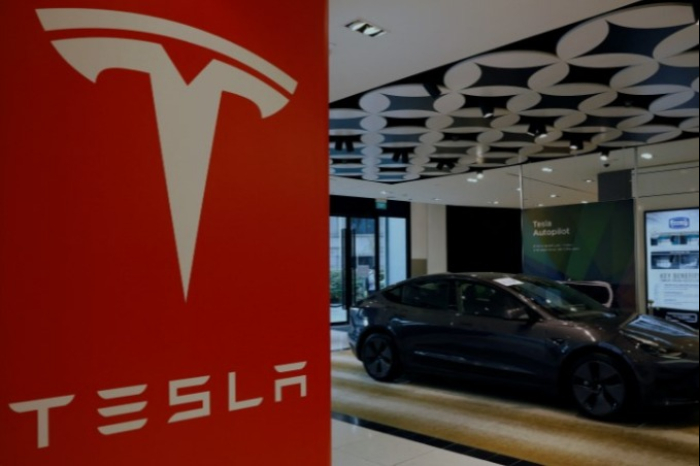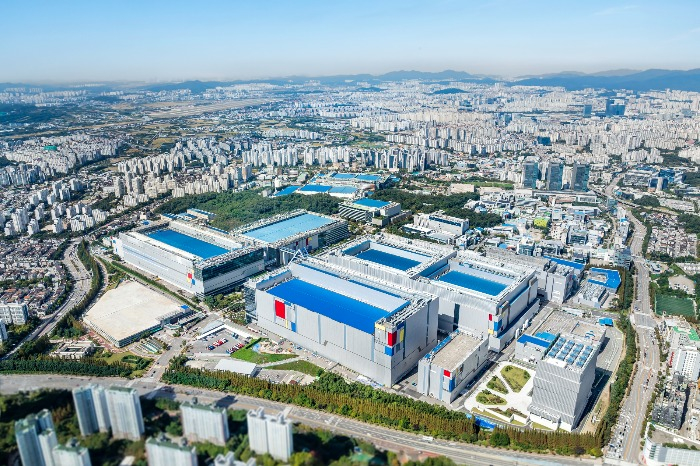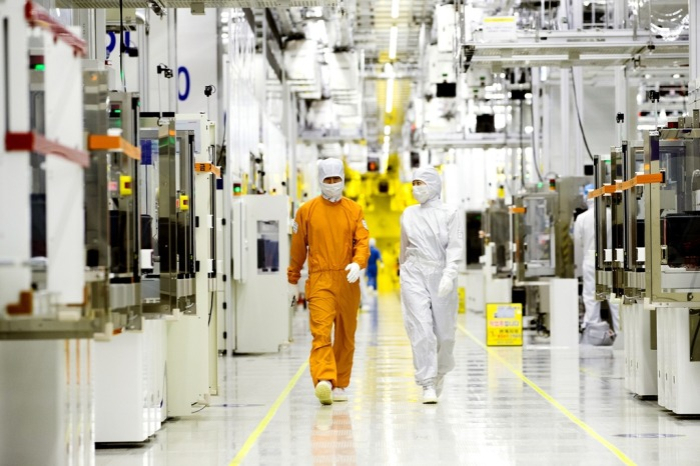
Samsung Electronics Co. and Tesla Inc. are in talks over a deal for the South Korean tech giant to produce 2 nanometer artificial intelligence chips for the US EV giant’s Dojo supercomputer at its new US foundry fabs in Texas, according to industry sources on Sunday.
If finalized, the agreement would mark a breakthrough for Samsung’s loss-making foundry business, which is seeking its first major customer for 2 nm chip production, analysts said.
Sources said both sides are ironing out final terms, including pricing and production volume, for a deal in which Samsung will produce 2 nm AI chips for Tesla’s supercomputer Dojo at its Taylor facility, which is expected to commence mass production in the second half of next year.
Jun Young-hyun, vice chairman and chief executive of Samsung’s Device Solutions (DS) division, which oversees its semiconductor business, reportedly met Tesla executives earlier this month in the US to push the deal forward.
Dojo is Tesla’s custom-built supercomputer designed to train its autonomous driving and robotics. This is expected to be the cornerstone of Tesla’s AI ambitions.

The world’s No. 1 chip foundry, Taiwan Semiconductor Manufacturing Company Ltd. (TSMC), has been producing 2 nm chips for Dojo since last year.
With Samsung joining the Dojo chip supply chain, Tesla is expected to gain additional bargaining power in pricing negotiations with TSMC and ensure a secure supply of AI chips, the key to the success of the Dojo supercomputer.
The deal is also expected to boost Samsung’s foundry business, which has struggled to attract orders from major US tech companies like Apple Inc. or Google, both of which rely on TSMC’s 3 and 2 nm nodes for their chip production.
UTMOST EFFORTS TO REGAIN THE GROUND
Samsung has trailed behind its bigger rival TSMC in the race to produce advanced chips at 3 nm and below.
It has won 2 nm chip orders only from a Japanese fabless AI chip startup and Samsung’s own system chip unit, System LSI.
Samsung expects its 2 nm process will improve chip performance by 12% and energy efficiency by 25% compared with the 3 nm technology.

In anticipation of broader demand, Samsung has ramped up its foundry output with the addition of new fabs in Pyeongtaek, Gyeonggi Province in Korea and Taylor, Texas.
But without a major anchor customer, Samsung’s foundry arm posted 2.5 trillion won ($1.8 billion) in operating loss in the second quarter this year.
After failing to secure enough orders, the company has put off the date for mass production from the $37 billion Taylor fabs from late 2024 to 2026.
The Korean foundry company’s gap with China’s largest foundry, Semiconductor Manufacturing International Corp. (SMIC) has also narrowed.
Samsung’s share in the global foundry market shrank to 7.7% in the first quarter of this year from 8.1% in the previous quarter, according to TrendForce. Over the same period, No. 1 TSMC commanded 67.6%, up from 67.1%, while SMIC captured the third-largest 6.0%, up from 5.5%.
YIELDS STILL A CONCERN

In March, Samsung brought a former TSMC executive, Margaret Han, on board to lead its North American foundry operations, ramping up efforts to secure foundry orders in the US.
As talks with Tesla near conclusion, Samsung has resumed construction at the Taylor site, including a cleanroom assembly and equipment installation.
“Samsung’s Korean employees who returned home last year due to a delay in commercial operations of the Taylor plant are now expected to head back to Texas soon,” said an official from the industry.
“The plant will likely begin mass production after installing core equipment, possibly by the second quarter of next year at the latest.”
However, production yields remain a major challenge. Samsung’s 2 nm chips are reportedly reaching just 30% to 40% yields – well below TSMC’s estimated 60%.
Higher yields are considered vital to securing large-volume customers.
By Chae-Yeon Kim
why29@hankyung.com
Sookyung Seo edited this article.















